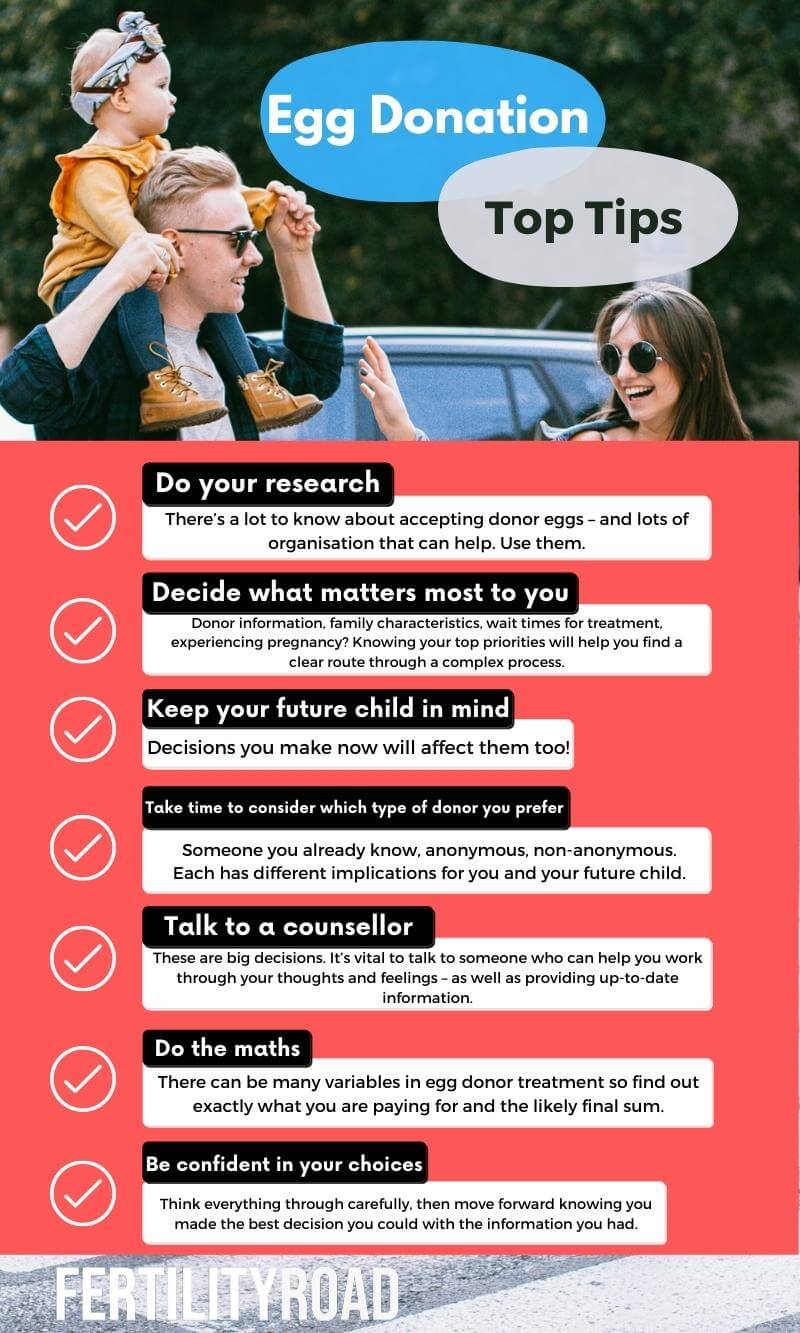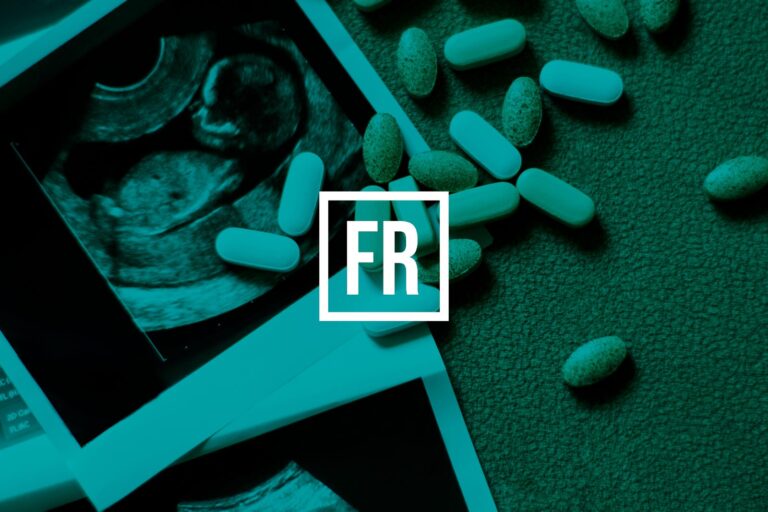Choosing to use donor eggs to have a child is a big decision. There’s a lot to think about from where to find a donor, to the medical process and not least the overall cost.
This route to parenthood can be an expensive business – and one that the NHS rarely pays for. Ninety per cent of donor cycles in the UK are funded privately.
In this article, we will explain:
- How IVF with donor eggs works in the UK
- The cost of IVF with donor eggs in the UK
- IVF and egg donation rules and regulations in the United Kingdom
IVF treatment using donor eggs
Couples undergoing IVF with donor eggs have often lived through several failed fertility treatments. Sometimes a would-be mother has been told that her egg quality is too poor for success. Then the best hope of getting pregnant is to work with an egg donor.
After costly rounds of infertility treatment, no baby and a lot of disappointment – couples oftentimes just want something that works.
The IVF procedure with donor eggs works for many. Using an egg donor gives patients a 1-in-3 birth rate per embryo transferred. That’s for all age groups up to 50.
Around 6% of IVF cycles in the UK are now linked to procedures using donor eggs.
Finding an egg donor for IVF procedure
Once you know you want to try IVF with donor eggs the next big step is finding a donor. Younger eggs generally have a greater chance of making healthy babies. So the age limit to donate is 18 to 35. Exceptions are sometimes made for known donors – such as a sister or friend.
All egg donors are screened. They have blood tests and genetic checks and must provide details of their family medical history. Candidates for egg donors should meet the following criteria:
- Aged 18-36 years old
- Able to provide a full medical history – so there’s no chance of a hereditary genetic disease being passed on.
- Fit and healthy, a healthy weight, and a non-smoker.
- Fully screened – clinics do thorough blood tests as well as chromosomal and genetic testing.
- Willing to go to compulsory counseling to talk through the risks and the possibility of having a genetic child out there in the world.
- Committed – donors need to be fully on board to give up their time for all the medical meetings and procedures and to take all the drugs and injections needed.
- Able to accept they are not legally parents – they do not have any legal rights or obligations towards the child.
- Willing to sign paperwork to give ‘informed consent’ for the use of their gametes. Egg donors can change their minds right up to the moment an embryo is transferred.
- Able to write a message of goodwill which is kept for adult offspring to read. This and the personal description help give a sense of who the donor is as a person.
In the UK it is illegal to pay egg donors. Eggs may only be given altruistically – purely for the good of another.
In a survey carried out for the charity Fertility Network UK 40% of patients travelling abroad for fertility treatment said that better access to egg donors was a key reason for their decision. The overriding motivator was cost – 80% said that was a factor.
The UK’s tight rules around egg donation mean that it can take longer to find a good match.
Serious shortage of ethnic minority donors in the UK
One major issue in the UK is the shortage of ethnic minority donors.
Dr Edmond Edi-Osagie specialises in reproductive medicine and told the BBC “Any time I see an Afro-Caribbean woman over the age of 35 who walks through my clinic, the first thing I think about is, ‘Are they going to need donor eggs?’ My heart really sinks, because I know that it’s going to be a really difficult battle if they are.”
Understandably parents often do want a donor of the same ethnicity so their child feels part of the same family, community, and culture. Sadly for some groups that is more difficult to find.
Asian patients make up around 14% of IVF cases. Asian donors make up just 4% of all eggs given.
How long does it take to find an egg donor in the UK?
Finding the perfect match so much depends on where patients are and what type of donor they are looking for.
In some places, there are long waiting lists. IVF clinics frequently report waiting times of up to a year. Up to 2 years in parts of Scotland.
Some couples have a long list of requirements for their donor. But many people just want their child to look a bit like them. IVF clinics vary in how closely they match donors and recipients.
The more precise patients want their match to be the harder it is to find that perfect person. The best advice is to compromise.
Known or unknown egg donor for IVF?
Since 2005 UK donors have had to provide the donor’s name, address, and other personal information. Children turning 18 this year have the legal right to access all of these details and find out the identity of their donor.
IVF with donor eggs in the UK – how it works
The egg donor takes fertility drugs and undergoes scans and egg collection. The eggs are checked for suitability and either fertilised or frozen and stored. Then everyone waits and hopes for healthy embryos to form. Once an embryo is ready – ideally at the blastocyst stage – it is transferred to the intended parent.
| Stages ofIVF procedure with donor eggs | Description |
| Initial consultation | an initial consultation at a fertility clinic |
| Donor matching | A personalised matching process based on different criteria such as physical characteristics, values, and interests, and more |
| Egg donor’s ovarian stimulation | 8-14 day ovarian stimulation process controlled by medical experts |
| Egg retrieval | Collection of donor eggs. A donor is under under mild sedation or anaesthesia |
| Fertilisation and embryo transfer | The eggs eggs fertilised with sperm, cultured in the laboratory for several days, and transferred into the recipient’s uterus |
| Pregnancy test | A test is performed (around 10-14 days after the transfer) |
The cost of IVF with donor eggs in the UK
Costs of the procedure vary depending on whether you are using fresh or frozen donor eggs and partner or donor sperm. One option is to use an egg bank and then choose your preferred clinic for treatment. Some patients say they have greater control over donor characteristics this way.
In the UK packages for a fresh cycle using an egg donor start at around £9,000. For a frozen egg cycle you are looking at £7,000 upwards. London clinics can be more expensive – costing around 10 to 15% more.
Most packages do not include recipient medication in the price. The cost varies because drugs are specifically tailored to the individual. Ask your clinic to know the top end of what you might have to pay.
Sit down and read through what is included. Some clinics list IVF with egg donation as a package. Others itemise each part of the procedure on their price list.
| IVF procedure in the UK | Cost in the UK |
|---|---|
| Donor matching costs + expenses up to £750 | £500 – £950 |
| Counselling sessions for donor and recipient | £85 – £130 |
| Screening tests for donor and recipient | £790 – £1189 |
| Semen analysis | £160 – £190 (often included in screening test package) |
| Guarantee of how many eggs you will get? What happens if this is not met? | Check for refund policy at clinic |
| Embryology – what’s included? Culturing to blastocyst stage, time-lapse imaging… | £625 – £800 |
| Pre-implantation genetic testing if needed (known as PGT-A or PGS). *Check the HFEA website for more information on these techniques | £1350 – £3250 |
| ICSI – sperm selection. Is this included? It often is for donor cycles but not always. It’s not always recommended. | £1250 – £1350 |
| Freezing (vitrification) and storage of surplus embryos. | £250 – £375 for extra 1 year storage £400 for vitrification |
| Pregnancy scan | £150 – £240 |
| Follow up consultation – if cycle fails | £165 – £225 |
| HFEA registration fees | £85 standard fee |
| FET (frozen embryo transfer) for any further embryos excluding meds. | £1100 – £2600 |
Is IVF with donor eggs in the UK expensive?
One of the main complaints that IVF patients have about private fertility treatment in the UK is the cost. If you are interested in getting know more about IVF costs in the UK – read our guide.
Academic researchers have found that the cost and the difficulty of finding donor gametes are barriers to accessing fertility treatment in the UK. People feel pushed to look IVF with donor eggs abroad.
For example, those who needed donor eggs were attracted to IVF clinics in Spain and the IVF clinics in the Czech Republic where egg donors are plentiful and waiting times relatively short. However there also other popular destinations for IVF with donor eggs – Greece and North Cyprus.
Egg donation UK cost vs. egg donation abroad
| Egg Donation Country | Egg Donation Cost |
|---|---|
| Egg donation UK | £5,600 – £18,250 |
| Egg Donation in Spain | £4,900 – £7,100 |
| Egg donation in Czech Republic | £3,600 – £4,600 |
| Egg donation in North Cyprus | £3,800 – £4,200 |
| Egg donation in Greece | £3,500 – 5,000 |
| Egg donation in Ukraine | £3,800 – £4,600 |
| Egg donation in Russia | £3,300 – £4,100 |
| Egg donation in Latvia | £5,000 – £6,000 |
Some parents head for IVF abroad because they want access to more information on the egg donor. Some IVF clinics abroad offer extras such as a photograph of the donor as a child or even as an adult. Others are put off by non-anonymity and actively seek out countries where egg donors remain anonymous.
You may be interested in reading: Why do Brits go abroad for IVF Treatment?
IVF using donor donor eggs – it’s your decision
It’s tough to make these life-changing decisions when you are already hurt by failed IVF. That’s why counselling is such a great help in working through all the emotions and implications of your individual situation.
For some, the right choice is to go for IVF using donor eggs. But the decisions don’t stop there.
Firstly, you may explore a list of the top IVF clinics in the UK and get in touch with them.
Take time to find out about the treatment options too and really research the cost of IVF with donor eggs. It’s a difficult process to find the best IVF clinics abroad – as there is no best IVF clinic for everyone – as every patient is unique and different.

FAQ
What is IVF with donor eggs?
IVF with donor eggs is a fertility treatment often recommended for patients who struggle with getting pregnant due to poor egg quality or a low number of eggs. IVF procedure with donor eggs can also be recommended for same-sex couples wanting to have a baby.
What is the maximum age for IVF with donor eggs in the UK?
In the UK, there is no official age limit for IVF with donor eggs, but most clinics usually set the limit at around 50 to 55 years.
What is the success rate of IVF with donor eggs for over 40?
IVF with donor eggs has much higher success rates, especially for women over 40, those with low egg reserves, or who have had several failed IVF attempts. In the UK, the average success rate is around 30% for women over 38, though some clinics abroad report higher rates. Success increases with more cycles, reaching over 80% by the third cycle.
Factors that affect success include the quality of the eggs and sperm, the recipient’s age and health, the clinic’s experience, and the male partner’s BMI and sperm quality.
Is IVF with donor eggs more successful compared to IVF?
Overall, IVF with donor eggs usually has higher success rates.
Where can I find cheap IVF with donor eggs in the UK?
Research clinics and ask about their packages. If you need help, contact our team, and we’ll assist you in finding a clinic, including options in Europe, that fits your needs.
Can donor egg IVF be combined with genetic testing (PGD/PGS)?
Yes, IVF with donor eggs can be done with PGD or PGS.
What are the risks associated with IVF using donor eggs?
Using donor eggs for IVF can be effective for patients; however, the treatment comes with risks, such as mild to moderate pain after embryo transfer and possible emotional or psychological effects.



